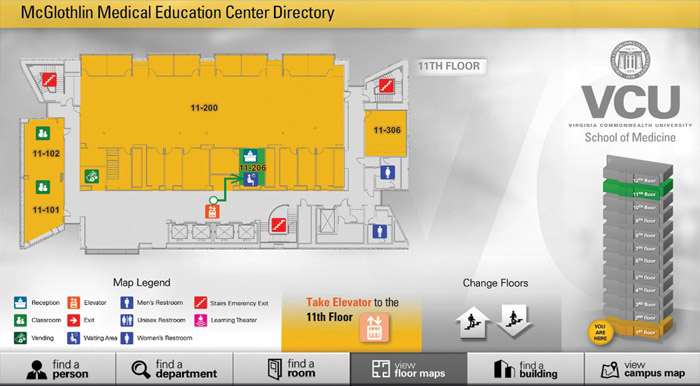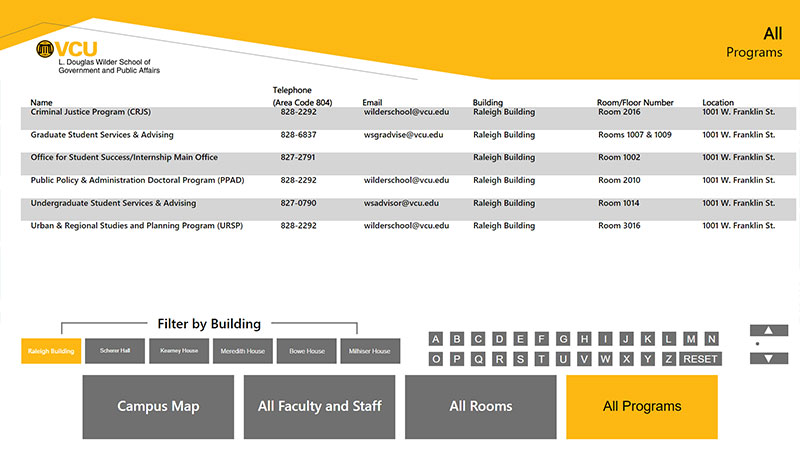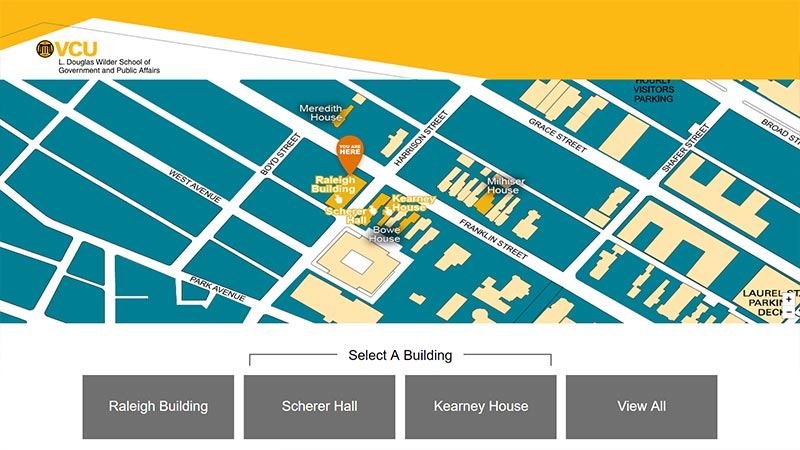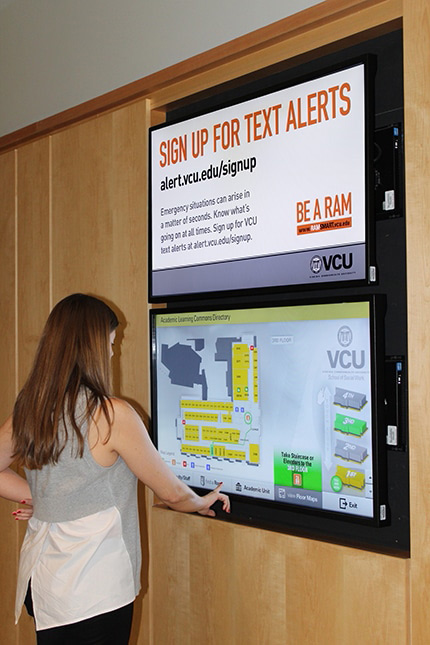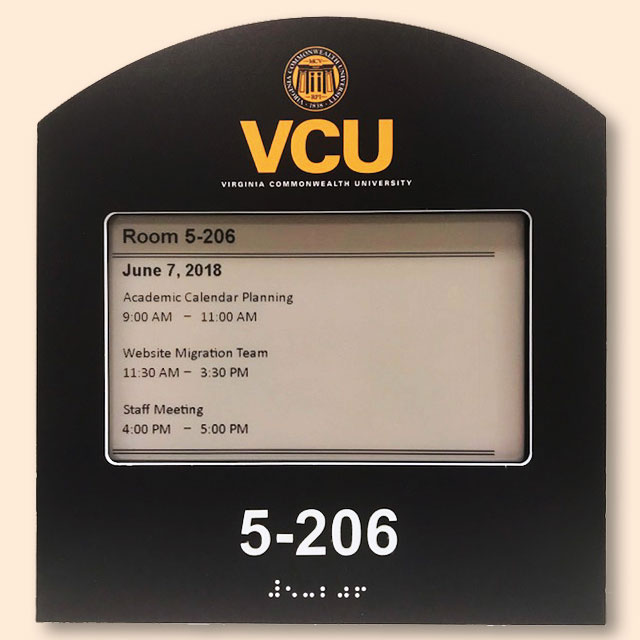Virginia Commonwealth is the largest university in the state, and the first major American research facility to offer a BA program in Homeland Security and Emergency Preparedness. With 30,000 students and more than 17,000 full and part-time faculty and staff to inform and protect, VCU practices what they teach.
When Assistant Director of User Services Sam Kennedy and his team started shopping around for a digital signage software solution, they were offered a grant from the Department of Homeland Security if they used their system to develop public emergency communications. This enabled VCU to purchase a unified software solution from Visix, which is the centerpiece of a sophisticated, campus-wide visual communications system delivering news, announcements and emergency alerts across 15 buildings and over a television network connected to the RF (CCTV) system.
The human element is crucial to Kennedy, who sees the system as an important means of getting communications where they need to be in a timely fashion. “To communicate, you’ve got to use multiple channels because different people perceive messages differently. We have a wide-focus communication plan that assists word-of-mouth. People must be integrated into the solution or it ultimately has no meaning,” says Kennedy.
AxisTV digital signage software from Visix gets information to VCU’s audience wherever they are, delivering crisis communications to thousands of overlapping endpoints. At the click of a mouse, AxisTV pushes information out to 40 media players sending content to 50 displays plus Visix publishers for smaller screens and mobiles.
The system was first implemented in residence halls near security check-in desks. “These desks are staffed 24/7,” explains Kennedy, “and the displays have small sirens on them that can sound a tone in case of an emergency, drawing attention to the display.” Sirens are also placed around the campus. In the event of an emergency, these will alert people to the fact that there is something happening and cue them to check displays for information.
Because the software is browser-based, Kennedy and his team can activate AxisTV’s alert mode from any PC or mobile with access to the web to alert the entire network.
Visix software isn’t relegated to just an emergency warning system – VCU uses AxisTV to deliver announcements, event schedules, news and weather across the university on a daily basis. Each school on campus uses AxisTV to reach their audience with their own content, but Kennedy and his team can override the entire system if they need to broadcast emergency notices about severe weather or security warnings.
“The breadth of AxisTV digital signage software gives us opportunities to grow,” Kennedy told us. Other planned installations of AxisTV include displays in administrative areas and external signage, such as in parking decks and lots, and outdoor signs near the most popular campus access points.
Kennedy concludes, “We always had to fight the noise, but digital signage is clearer and more dynamic. Plus, our ability to push information beyond displays to PCs and portable devices is invaluable.”
